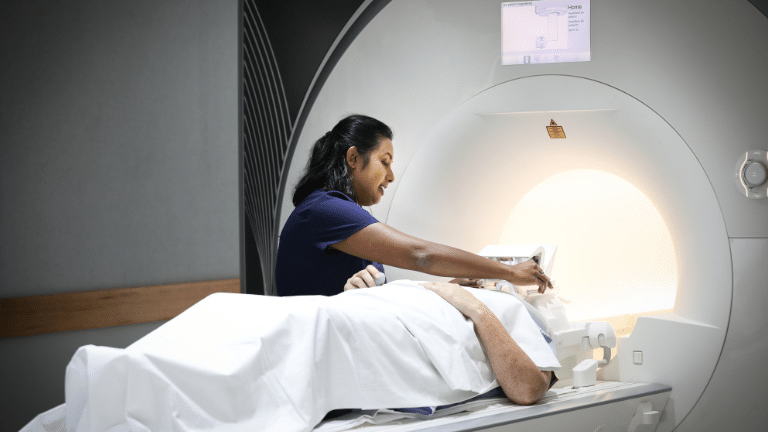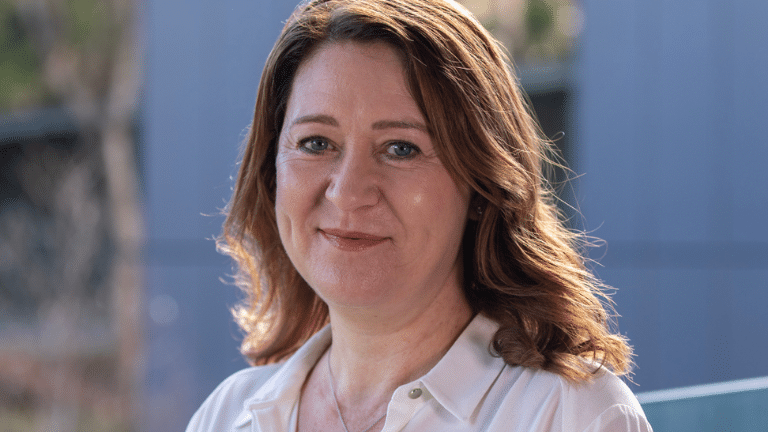
While the use of MRIs has exploded in the diagnosis of breast and prostate cancer, vital research is still needed in Australia to determine the role MRI has in bladder cancer and how it can be more useful.
So far almost 30 Novocastrians with bladder cancer have participated in the MRI Bladder Project, undergoing MRI before their bladder tumour resection.
Associate Professor Alison Blatt, Director of Research in the Department of Urology at the John Hunter Hospital and a researcher in HMRI’s Surgical and Perioperative Research Program said, “Two radiologists independently score these MRI scans without knowing any other patient information and then we compare the cancer depth predicted by the MRI to the microscope results.”
“The standard practice for managing bladder cancer is by resecting the tumour from inside the bladder until we go deep enough to think we have got it all. Then we look at it under a microscope and go back and resect it a bit more if we’re not sure.”
“This technique has barely changed since it was first performed over 100 years ago, including by my great-grandfather in Vienna. For some bladder tumours, this is adequate treatment, but for others, we can underestimate the depth and extent of the cancer and risk further spread of disease.”
By using MRI, the hope is that surgeons will be able to see how deep the tumour is before operating.

“One day in the future, MRI could help us stage bladder cancers without cutting into the tumour,” Associate Professor Blatt said.
“As with all areas of the body, MRI requires experienced radiologists and technicians to achieve a reliable answer.
“We know there is going to be a learning curve before we can achieve the kind of results being claimed elsewhere.
“We are hoping to improve this with time and then be able to demonstrate the learning curve accurately for the benefit of other institutions looking to introduce this imaging modality.
“Bladder cancer is a significant cause of mortality and morbidity in Australians and doesn’t get talked about enough. It deserves a lot more attention than it gets, and we desperately need more funding to support this trial.”